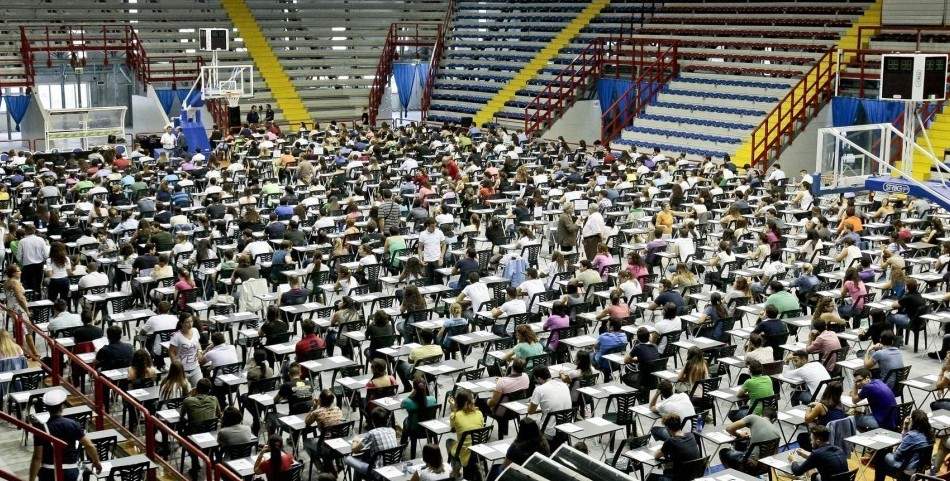After nearly three years, the ministry's AFAV competition ends. Rankings published
It took almost three years (two years and nine months to be exact, from August 2019 to May 2022), but at last the Ministry of Culture ’s big competition for the recruitment of 1,052 Attendance, Reception, and Vigilance Assistants (AFAVs), is over: the final merit list, approved by the examining board and validated by the RIPAM Commission, was published yesterday.
It was August 9, 2019, when the ministry published the notice of competition for the permanent recruitment of the new 1.052 staff units, to be placed in Area II, economic position F2, with the professional profile of Assistant to the Ministry’s Fruition, Reception and Supervision, to fill positions in all regions where there are facilities of the MiC (which at the time was still called “Ministry of Cultural Heritage and Activities”): 30 in Abruzzo, 18 in Basilicata, 64 in Calabria, 200 in Campania, 51 in Emilia-Romagna, 7 in Friuli-Venezia Giulia, 198 in Lazio, 48 in Liguria, 77 in Lombardy, 15 in Marche, 14 in Molise, 57 in Piedmont, 36 in Puglia, 14 in Sardinia, 2 in Sicily, 155 in Tuscany, 20 in Umbria and 46 in Veneto. Deadlines expired on September 23: as many as 209,729 applications were arriving at the MiC by the time applications closed, which meant that each applicant had about a 1 in 200 chance of being hired. Applicants were overwhelmingly female (58 percent), average age 34, and overwhelmingly from the Central and South (25 percent from Campania, 20 percent from Lazio, 10 percent from Sicily-these were the most represented regions).
Given the huge number of candidates, the competition immediately proceeded at a slow pace: however, on December 19, 2019, the diary for the pre-selection tests was published, which would be held from January 8 to 20, 2020, at the Nuova Fiera di Roma. The pre-selective tests had been strongly criticized: Professor Giuliano Volpe, former president of the Superior Council of Cultural Heritage wrote: “a quick look at the type of quizzes foreseen highlights a blatant incongruity: 40 of an aptitude type for the verification of logical-deductive ability, logical-mathematical reasoning, verbal critical character and 20 on general elements of cultural heritage law, Italian art history and safety in the workplace. While any high school diploma is expected as an entry qualification, passing the quizzes seems to require a mix of skills from graduates in mathematics, law, economics and cultural heritage.” In any case, on Jan. 28, the ministry announced the outcome of the pre-selection rounds, to which an estimated half of the 209,729 applicants showed up: 5,366 aspiring AFAVs were admitted to the written test.
On February 20, 2020, the diary of the written test was published, scheduled for March 19, 2020, also at the New Rome Fairgrounds: in the meantime, however, the Covid-19 pandemic arrived to disrupt our lives and consequently also the ministry’s competition: the written test, on March 3, was therefore postponed with the promise to communicate “within a short time” the new dates. The latter were indeed announced the next day: the writing was optimistically postponed to April 24, 2020, and a technical table was activated to continuously assess the epidemiological situation, to accommodate updated legal provisions, to study further containment measures of the virus, and to ensure the safest conditions for candidates and the staff called to assist candidates during the tests. However, as the pandemic worsened, the writings were postponed indefinitely on March 18.
Candidates had to wait more than a year, and moreover there was criticism because the announcement of the new date was issued with little notice: on July 3, 2021, Formez President Alberto Bonisoli announced that the writing would be held on July 28. One year and four months after the postponement, candidates therefore finally had a date. The outcome of the written was communicated on July 31, but it would take another five months to give the survivors the dates of the orals, which arrived on Christmas Eve (with an accompanying coda of criticism for the choice of timing): on December 24, 2021, candidates were told that the orals would be held from January 17, 2022. However, on January 11, thus six days before the holding, they were notified of a postponement to January 31, 2022 due to the need to reshape procedures. But it was not over: on January 27, thus four days earlier, another postponement to February 7: finally the tests could start, with a schedule set until February 28. Another two months to draw up the merit list, and so we arrive at May 10, with the publication of the last act.
The first 1,052 on the ranking list, therefore, are now expected to be offered a permanent position in the ministry. According to the announcement, the recruitment of the winners will take place subject to the limits imposed by the current regulations on financial constraints and hiring regime.
 |
| After nearly three years, the ministry's AFAV competition ends. Rankings published |
Warning: the translation into English of the original Italian article was created using automatic tools. We undertake to review all articles, but we do not guarantee the total absence of inaccuracies in the translation due to the program. You can find the original by clicking on the ITA button. If you find any mistake,please contact us.




























